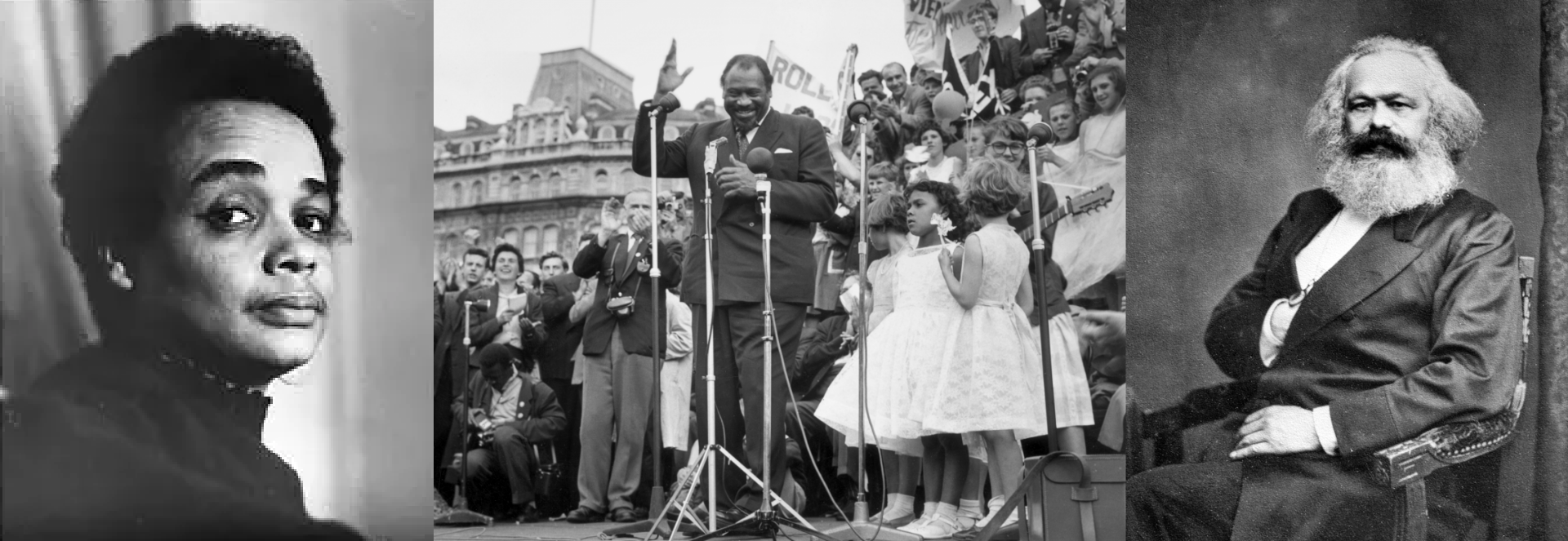The debate around the peace process essentially rages around two lines of thought. The first line, pragmatic, considers that it is basing itself on realities, very harsh and painful realities. They see that the US has won a huge victory in the Gulf War, that the war has had disastrous economic effects on the Palestinians, that the Soviet Union and the socialist camp has collapsed, that virtually every single Arab state have accepted US hegemony in the region, that the intifada has failed to force Israeli concessions or even a halt in the spread of settlements. They see the European Community deferring to US leadership in the region -in short, the Palestinians seem to be isolated and virtually helpless.
It would seem, then, that any kind of a step forward for Palestinian rights, given the overwhelming power arrayed against the Palestinians, given the constant influx of new Israeli Settlements in the occupied territories, is worthwhile. The US seems to be prepared to impose on Israel some degree of Palestinian autonomy, even -if not full independence yet. Why not move in that direction now and then use that step to achieve greater rights later, including full independence?
Such is the reasoning of those who are promoting Palestinian participation in the present framework of peace talks. There is, it must be admitted, a seductive attractiveness to this reasoning. It is, as a matter of fact, the classic reasoning of the reformists who believe that fundamental social transformations are achievable salami slice by salami slice.
In the case of the struggle for Palestinian statehood, the questions to be asked are these:
Does the proposed course of action contribute to greater clarity of vision of the masses or does it blur that vision? Does the proposed course of action enhance the combativity of the masses or does it lead to apathy or resignation?
Does the proposed course of action increase the pressure on the enemy and contribute to strains in the enemy camp which then can be further exploited? Or does it take the pressure off the enemy and allow the enemy to consolidate its strength? Does the proposed course of action contribute to unifying the people around a program of militant struggle or does it split the people and thus lessen their capacity to wage the necessary struggle? Does the course of action raise the morale of the masses, imbue it with confidence in the future and the certainty of victory? Or does it demoralize, sow pessimism and lack of confidence in one’s own strength?
The course of action of cooperation with the United States in the present negotiating process is a confession of impotence, is a vote of no confidence in the ability of the Palestinians to make their own future. It delivers the Palestinian people into the hands of their enemies and tries to convince the people that their enemies are their friends.
Those who have embarked on this course may well say that it is all well and good to spout militant phrases, but it is irresponsible, for there is no viable alternative to the present course of negotiations. They say that to be inflexible at this juncture of history is to lead the people to national suicide.
What, then, is the objective reality? Are the odds indeed hopeless? We would ask the “realists have they entered these facts into their calculation:
- That the US is in the beginnings of a major economic crisis, perhaps unprecedented in its history.
- That the ability of the US to finance its Mideast policy–including the continued subsidization of Israel–is becoming a growing financial burden, but even more important, is becoming increasingly difficult to sell politically to the people of the US.
- That the economic crisis is developing on a worldwide scale which, in turn, will lead to intensification inter-imperialist rivalries.
- That the tightening grip of the US on the region since the Gulf War threatens Japan and Europe, for it has placed them in a dangerous dependency with regard to its most vital energy sources.
- That the impact on Israel of the world economic crisis, and especially the US economic crisis, will be to intensify already severe economic strains and intensify domestic political contradictions.
- That the ever-tightening screws of the IMF on the great majority of Third World nations, while forcing them into a temporary submission, must lead to a social and political explosion, the ultimate effects of which will be to loosen imperialist control.
- That the growing world economic crisis is going to have an important destabilizing effect on the reactionary Arab regimes.
- That the growing world economic crisis is going to contribute to. rising domestic opposition within the imperialist states.
- That the drive for capitalist restoration in East Europe and the Soviet Union, which has already plunged that region of the world into sharp crisis, is going to create enormous problems for the imperialist states, adding to their financial problems, and possibly stretching their military commitments and thereby bringing upon them further political and economic problems.
In short, there is much that points to a coming shift in the world balance of forces. What is required, therefore, is the ability to weather the present political storms and above all, to keep the spirit of resistance alive.





